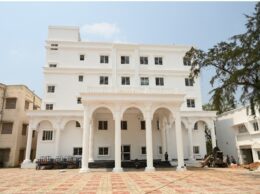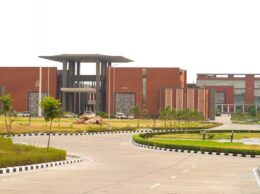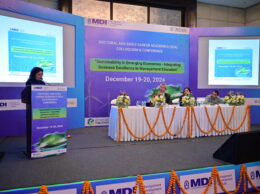New Delhi: There needs to be an increase in investment in higher education, technology and R&D segment to fulfill the demand of 15-17 million jobs per year. The expenditure on higher education has been fluctuating between 1 to 1.5% of GDP which is remarkably lower than several other countries. Finance Minister Arun Jaitley will present Union Budget 2017-18 tomorrow (01 February 2017). There are many expectations from the government on the education sector.
Dr Sanjay Dhande, Chief Mentor, Avantika University and Former Director, IIT Kanpur, said “To achieve the target of skilling India program, the Government needs to take several initiatives to ensure that incentivize institutions that facilitate these skills. Further push is necessary to implement policies that support this initiative so that there is only brain gain and no brain drain. What we need now is a simpler taxation policy which will encourage more players to invest in the education sector by starting new universities and a stronger university ranking framework. Cheaper loans and increase in number of scholarships will ensure more students can take benefit of quality education. “
Ms Monica Malhotra Kandhari, Managing Director, MBD Group said “Skill development and the promotion of education has been one key focus of the current government. We look forward to the government for their continued support in skilling and educating India’s young population. To further promote education sector, the government must make books, note books and educational material including e-learning education programs at zero rate under the new GST regime which is expected to kick in shortly. Also, a general tax holiday or tax incentive to those engaged in promoting education under the new tax regime will make the sector more accessible to the public.”
“It is also very essential that the upcoming budget increases the GDP ratio to 8% for the education sector as this will help increase government’s share for children’s education thus, reducing financial pressure on parents. Incentivizing institutions, provision of quality infrastructure and integrating education with the Digital India program will leverage the education initiatives undertaken by the government. A massive investment in state-funded institutions will make higher education affordable and accessible at the same time,” added Dr Dhande.
“The cost of education is still prohibitive to a large section of the population due to the incidence of various direct and indirect taxes, excise duty, and VAT on sector inputs like paper, CD’s, manufacture of educational materials, and content generation for digital education etc. Tax credit or exemptions for various input materials and other activities related to the sector and exemption of the industry from paying service tax are necessary measures to lower the cost of education and make it more accessible,” opined Ms Malhotra.
Dr Dhande mentioned that special focus needs to be given towards expediting plans of creating 20 world class institutions. “It would be important for the government to lower the gap in student to faculty ratio. There is a need to expedite the overall implementation of the New Education Policy as there are big reforms under that which have the potential to bring about a paradigm shift in teacher development and pedagogical reforms,” said he.









